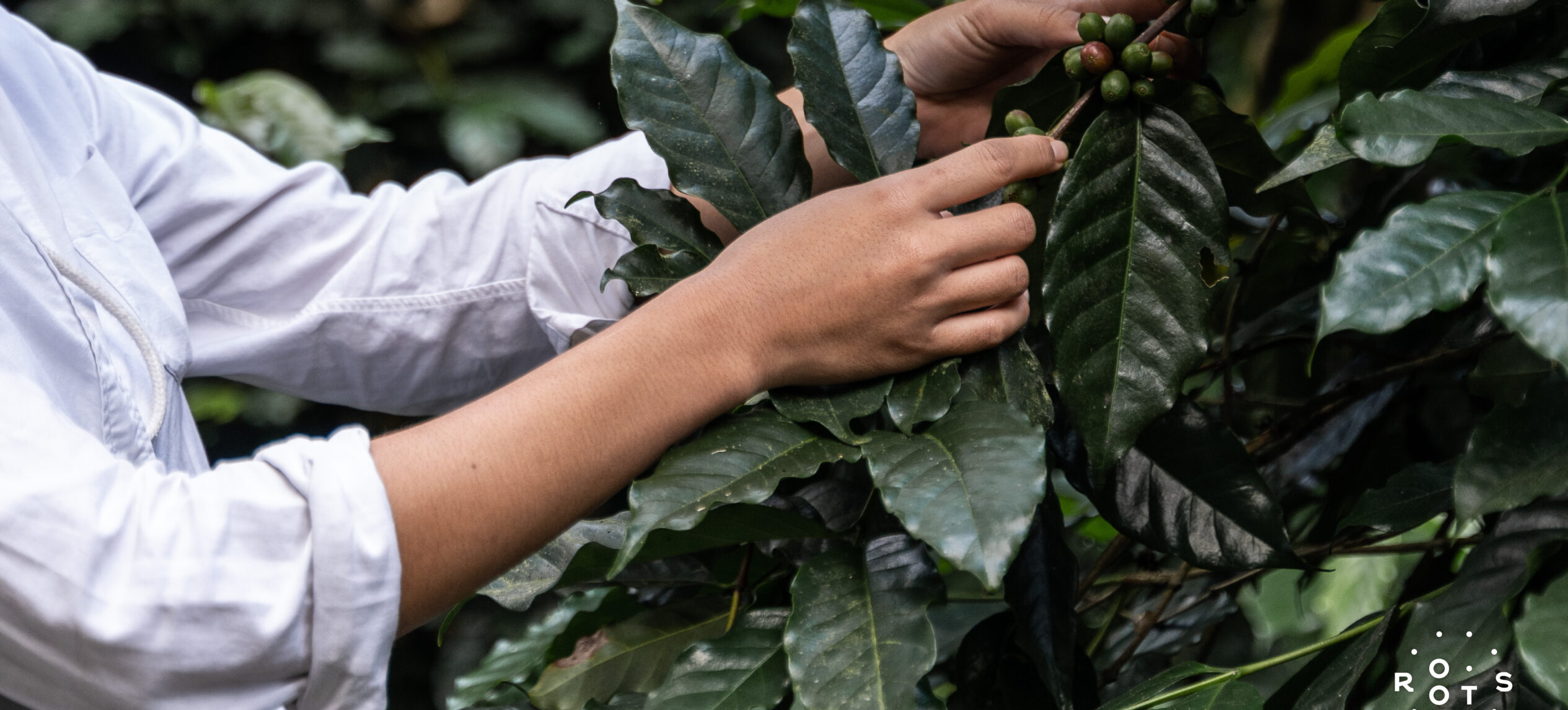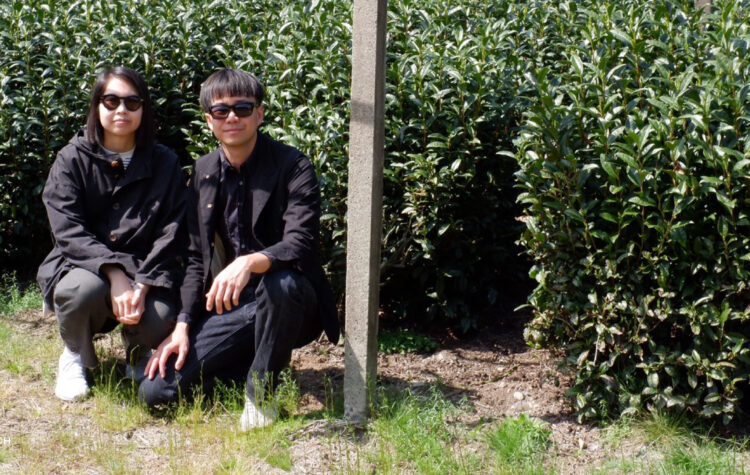Sun rays grow harsher, the rainy season is erratic, and the chilly wind arrives later than usual. Global warming is responsible for all of these climate shifts, which significantly impact seasonal crops like coffee more than ever.
Local farmers who entrust their lives to the number of coffee cherries grown each year are directly affected by this change, as well as people further along the supply chain, such as roasteries, coffee shops, and coffee drinkers.
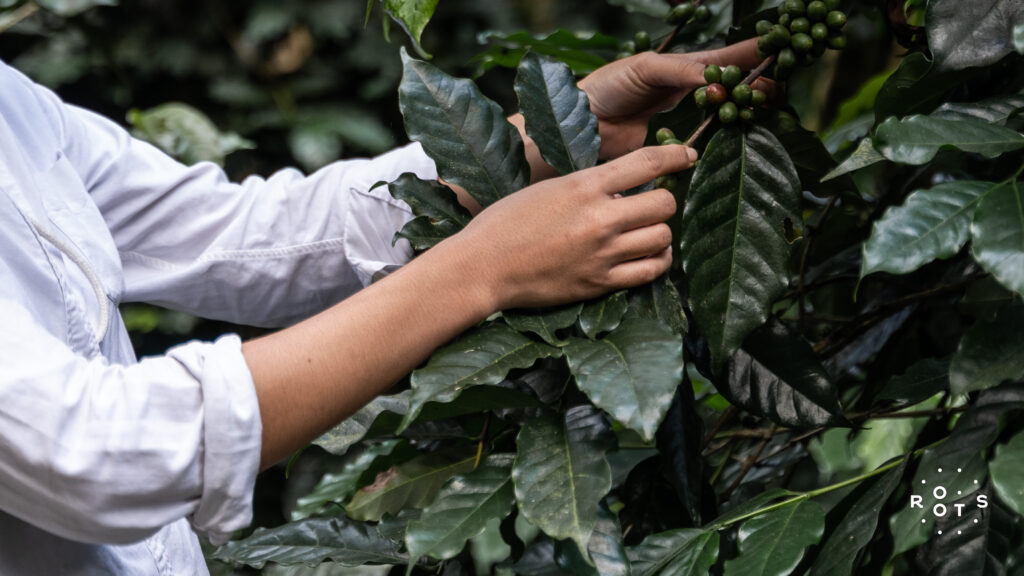
What happens when the Thai coffee industry faces turbulent weather, causing an impact on volatile coffee production? Let’s hear what local farmers P’ Nawin (Mae Suay, Chiang Rai), Aten (Mae Daet Noi, Chiang Mai), and others farther along the supply chain, like Fuadi from Beanspire Coffee, and Korn, a Green Buyer and Head Roaster from Roots, have to say about the challenges they are facing.
HOTTER WEATHER MEANS WEAKER COFFEE PLANTS
“Global warming has devastated a lot of coffee plants,” explains P’ Nawin. “Trees exposed to direct sunlight become weak and die quickly, and when we plant new trees to replace them, they don’t grow as well as they did before, so this approach is ineffective.”
“Coffee plants are similar to people, becoming stressed and uncomfortable when exposed to direct sunlight. Our solution now is to focus on coffee farm management. The optimal way to cultivate coffee plants is for them to grow and flourish under large trees and be exposed to indirect sunlight, not direct sunlight. Our parents’ generation grew them outside; therefore, farm management is something we need to explore and improve on,” Aten thinks back.
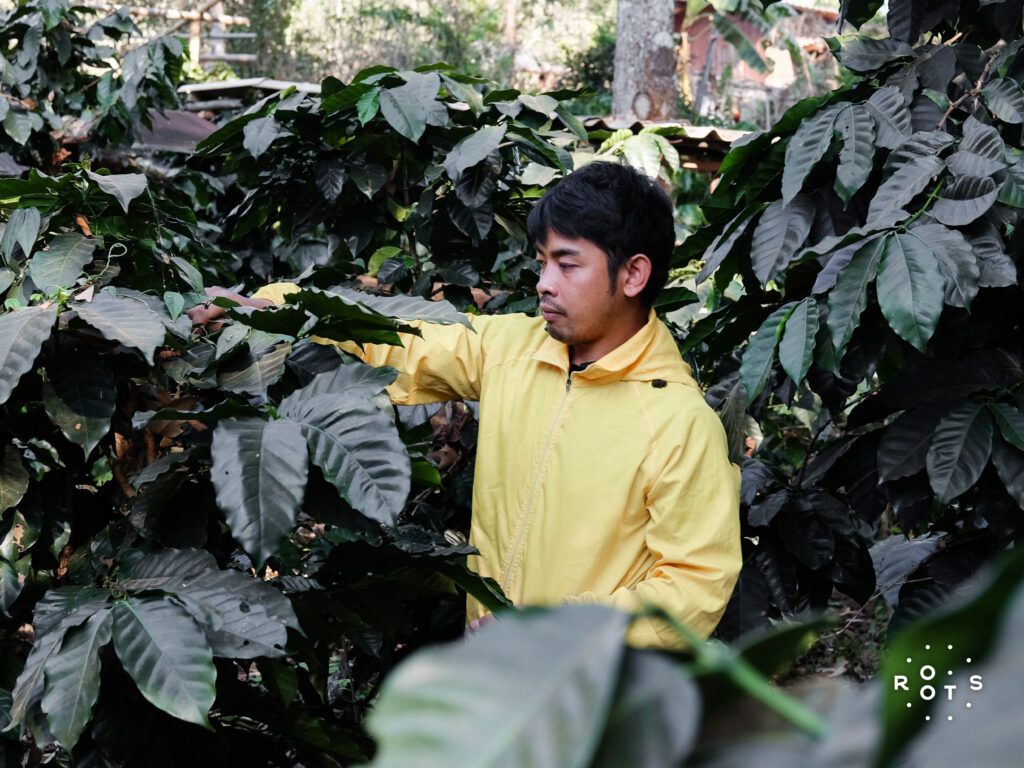
In P’ Nawin’s coffee farm, coffee plants that grow under large trees are stronger than others. So he began planting perennial plants along with the coffee trees, a process that takes about 2-3 years. When the branches of these plants grow, they will shade the coffee plants even more.
“Soil nourishment is essential now that we’re focusing on managing large plantations. If the soil is poor, the terrain will be poor as well. When it comes into contact with germs, it will become unwell, much like people. We must keep the coffee plants healthy for them to absorb the necessary nutrients from the soil, so from fertilizing twice a year, in June and August, we now fertilize three times a year, in April as well. During this time, the coffee plants are feeble because the cherries have been collected. It’s like a mother who has just given birth and needs some rest.”
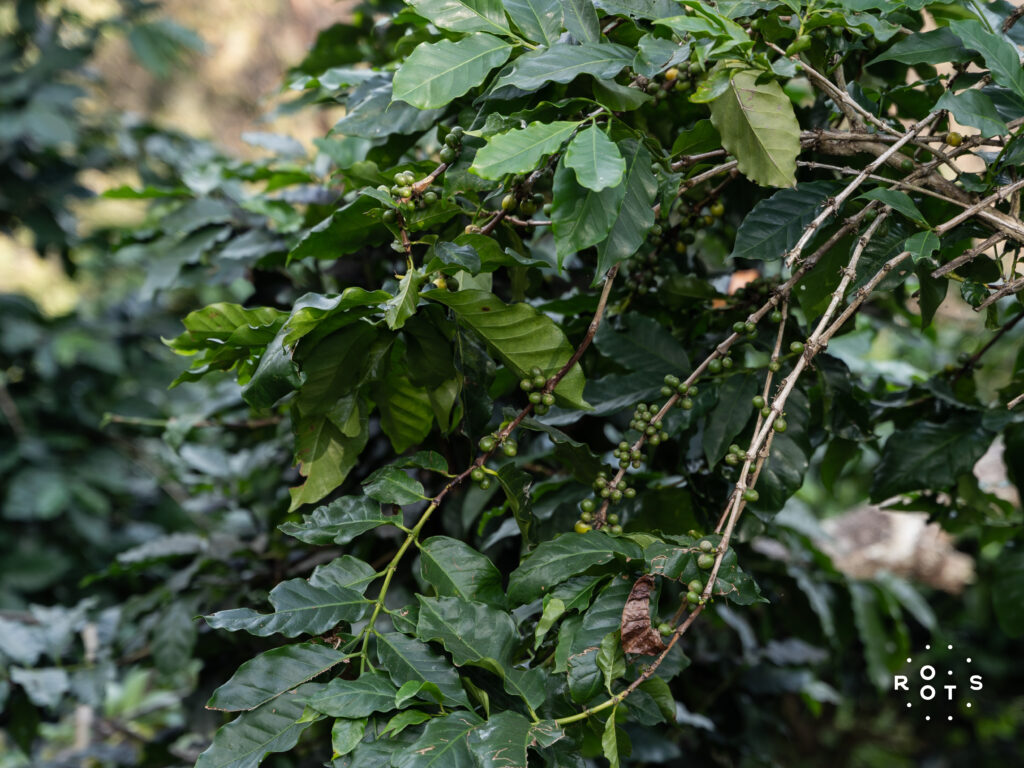
It is also critical to manage the topsoil. Because coffee plants are typically grown on plains, the soil surface must be designed to resemble a ladder to prevent nutrients from washing away during heavy rain.
UNPREDICTABLE RAINS CAUSE COFFEE QUANTITY TO FALL
“Winter rains cause problems in two ways. For starters, when nearly ripe coffee cherries are exposed to rain unpredictability, they fall and break. Second, farmers will receive less produce, resulting in lower earnings,” P’ Nawin elaborates.
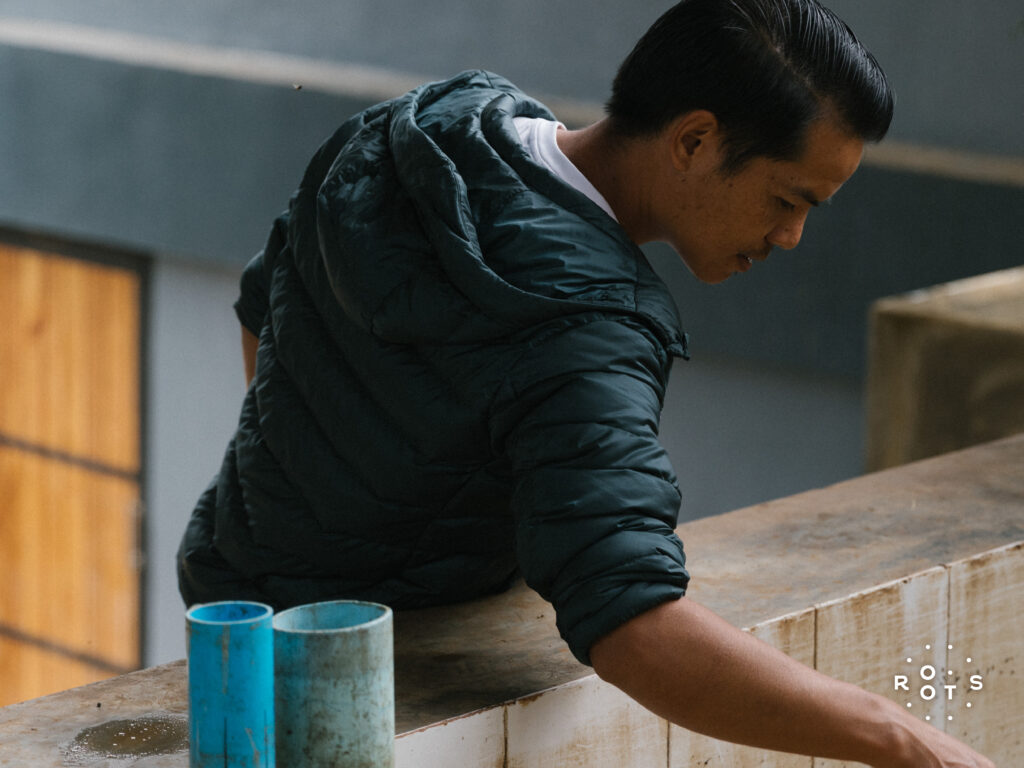
“Coffee plants typically yield every other year. Last year was anticipated to be a good year. However, it rained 4-5 times during harvesting, forcing the new season of coffee buds to grow faster. Whenever the rain falls, the coffee cherries also fall and prevent the coffee plants from flowering. This year’s output is projected to be low, with some farms losing up to 50% of their produce,” Fuadi elaborates.
“My farm’s coffee cherries vanished by 40%; I’ve never seen anything like that. My parents’ generation said they had never witnessed anything like it. Some of my coffee plants don’t even have coffee cherries! I wish I could pull up a photo to show you,” P’ Nawin laughed.
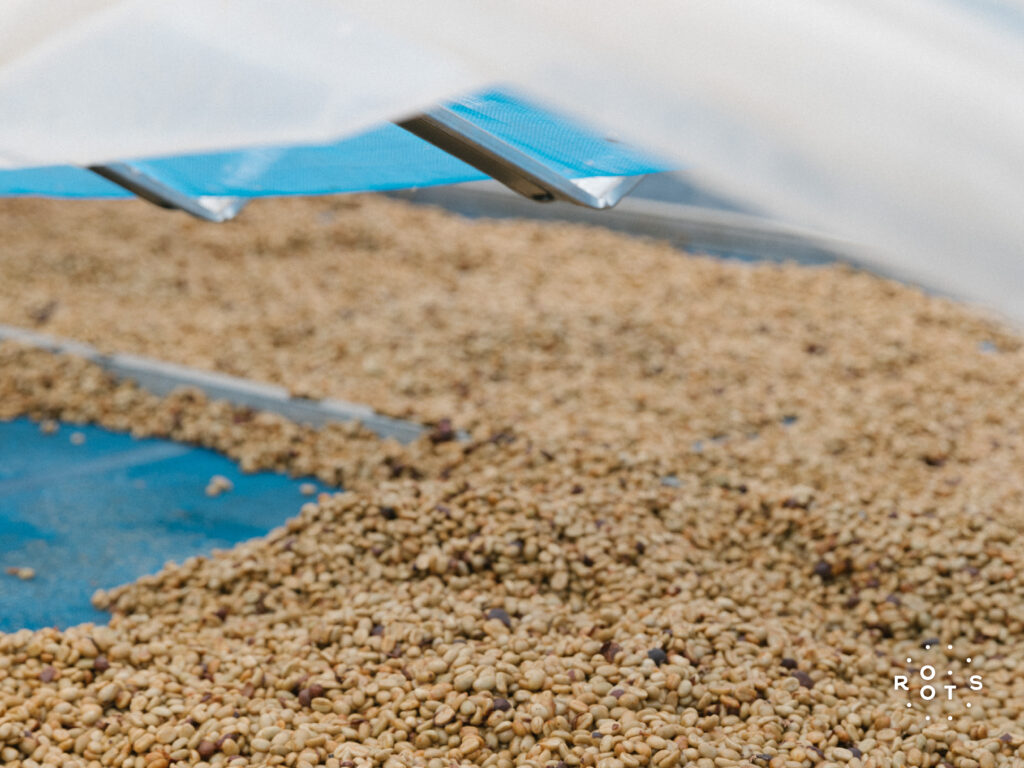
The rain also affects coffee processing. When the weather is humid, the drying process of coffee cherries takes longer, increasing the risk of mold and a musky odor.
“This is a challenge we’ll have to manage. It is critical to be prepared, such as where to relocate things when it rains and how to do so as efficiently as possible. We have to reflect on our working process. If there is a drought, however, Mae Daet Noi is unaffected because it is considered normal. Because of the shorter drying period, the hotter it gets, the better we process natural coffee,” according to Aten.
INSECTS AND DISEASES CAUSED BY TURBULENT WEATHER
“Another issue associated with global warming is coffee berry borers. I suspect the number of insects has grown, but I’m not sure if this is due to the hot weather allowing them to reproduce more quickly. I’ve noticed that there aren’t as many in cooler weather at higher elevations, but there are a lot more in hotter weather. The more coffee berry borers there are, the more coffee processing suffers.”
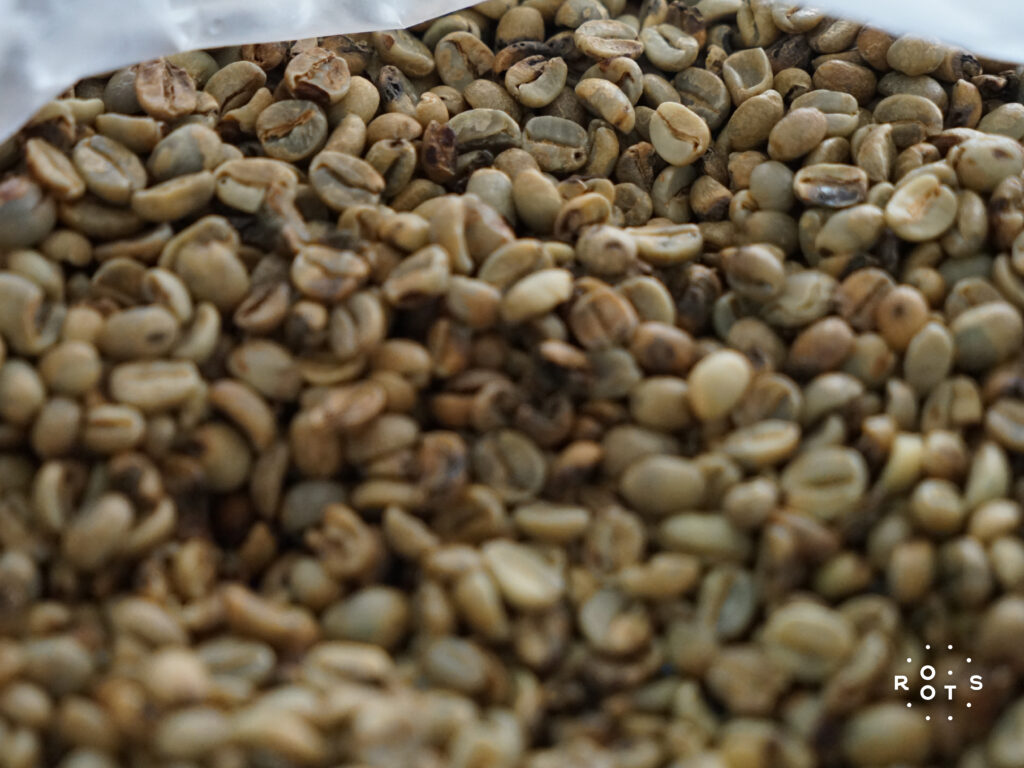
Anyone curious about the Coffee berry borers mentioned by P’ Nawin can learn more about them here: https://rootsbkk.com/journal/coffee-berry-borer-a-tiny-insect-causing-harm-to-coffee-plantations-worldwide/
Furthermore, the chilly wind spread a disease known as “Anthracnose” from chili plants to coffee plants on P’ Nawin’s farm. “They’ll be everywhere there’s an air vent. Because of it, I once had to demolish the entire area. It causes the leaves to dry off, leaving only the branches, and if the plant is already fragile, it may succumb to the effects faster. We haven’t figured out how to solve that problem yet.”
COFFEE BECOMES MORE EXPENSIVE FOR THE COFFEE DRINKER!
“Because produce is already low this year, the unstable weather reduces it even more. This raises the price of coffee by default based on market demand and supply. If 100kg of cherries sold for 20 Baht in the past, the farmers would receive 2,000 Baht. However, this year’s crop was 50kg, meaning the cherries must be sold for 40 baht for the farmers to earn the same amount.”
“Finally, it affects those who drink it. We anticipate that the price of Thai Specialty Coffee beans offered at the store will rise by 5-10 baht next year. People most affected are coffee roasters who need a storefront, as they may have to switch to coffee from other less expensive sources than Thai coffee,” Fuadi elaborates.
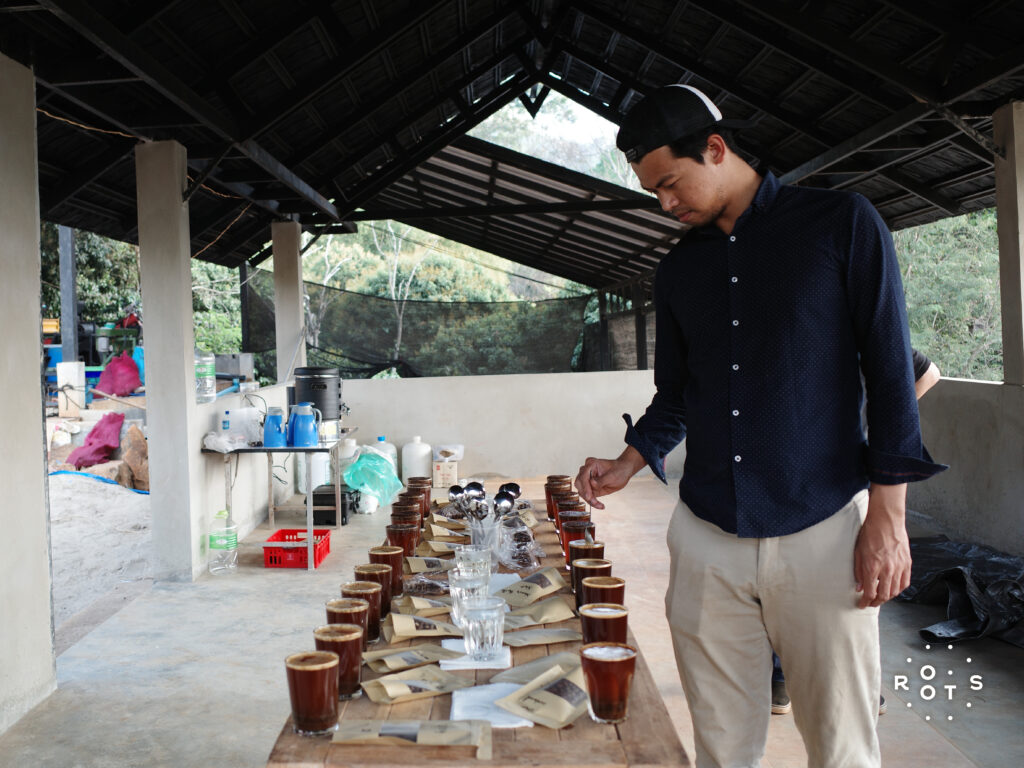
“The roaster must be profitable to bring coffee to roast. People who purchase coffee from roasters to brew and sell must also be profitable. That’s why wholesale coffee dealers don’t want to buy expensive coffee, because if the roaster makes a profit, the selling price skyrockets, and individuals who purchase coffee don’t want to pay for it, “Korn speaks from the perspective of a coffee roaster.

Due to unpredictable weather, Thai Specialty Coffee prices increase has a hidden effect on coffee quality.
“More expensive coffee does not guarantee higher quality coffee. What matters to a trader or coffee processor is having coffee on hand, and we can’t force coffee growers to select just the best, fully ripe coffee cherries that meet our criteria since there will always be someone willing to purchase it.” What Faudi is referring to is competition between middlemen. Focusing on quality may become something that some people overlook, especially when there is a limited supply of coffee cherries.
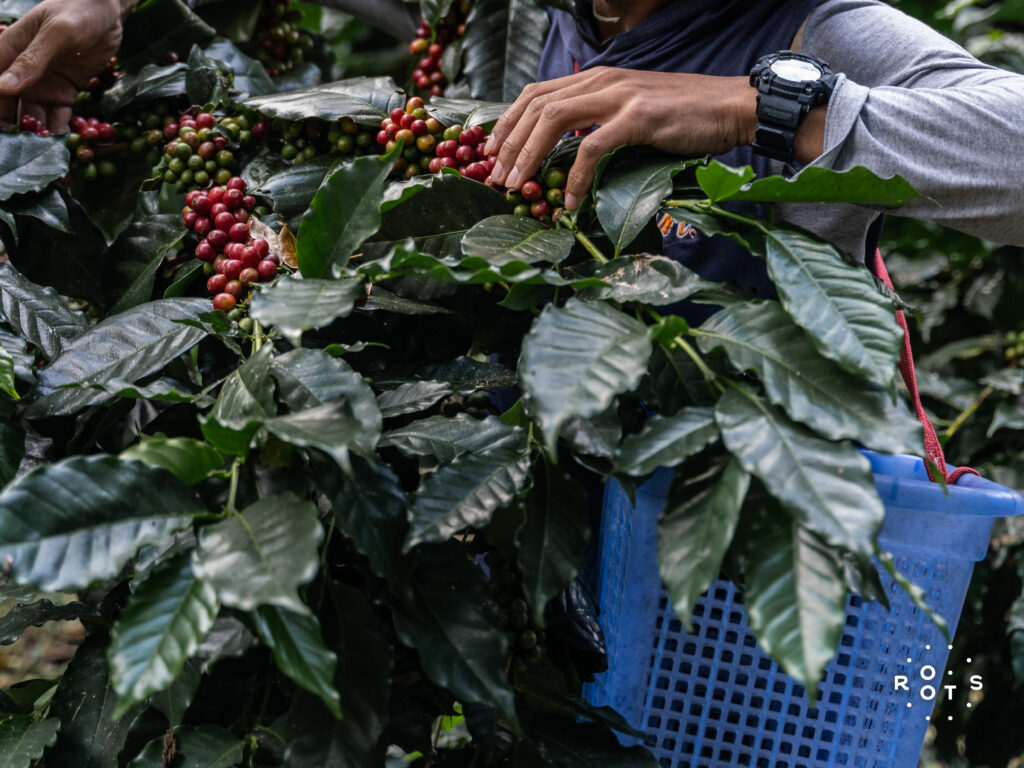
“When farmers pick low-quality coffee cherries, those end up in our pile as well, so it may not be of the best quality when it reaches the cup,” Fuadi emphasizes.
Let’s get back to how the Thai coffee industry will prepare for the unpredictable weather. Fuadi tells us that farmers worldwide, particularly those with greater land diversity than in Thailand, are beginning to shift their farming areas to higher elevations so that the coffee plants can flourish in an environment conducive to optimal growth and quality produce.
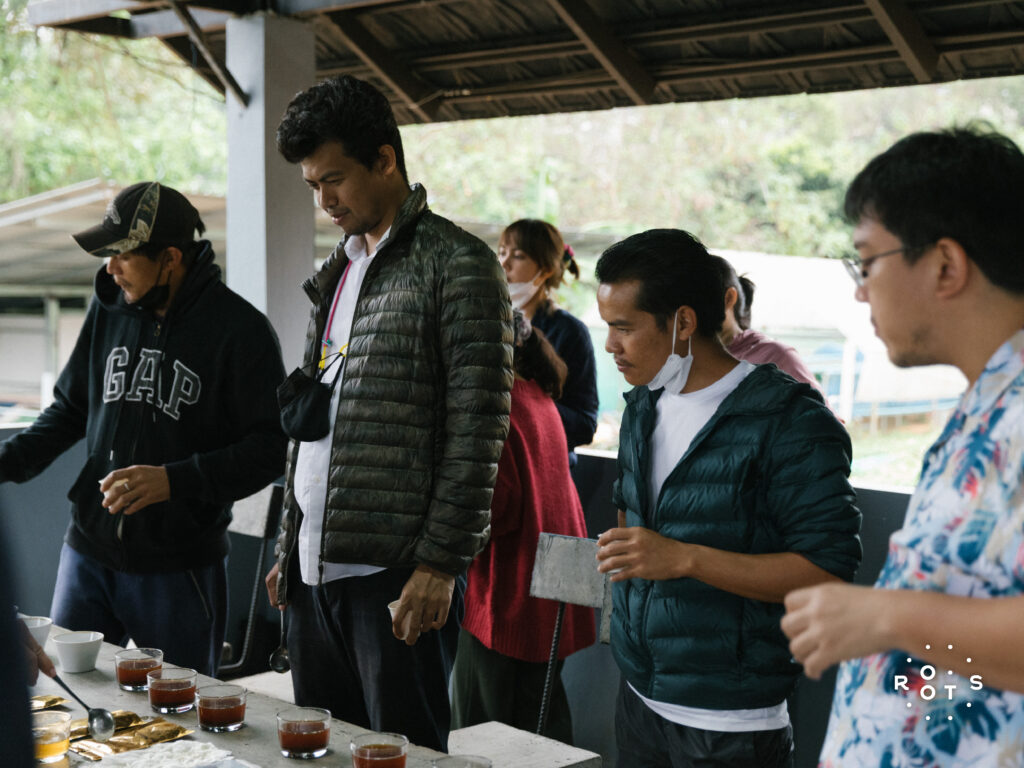
“Countries that have been cultivating coffee for a long time are continuously developing new varietals that can endure changes in terrain, backed up by research. When we talk about Thailand, we have to recognize that there has been very little coffee study, mainly because coffee is not a major cash crop, so we’ll have to wait and see,” Korn adds.
“Right now, we may be nearing a downturn for Thai coffee, therefore I encourage more people to support Thai coffee as long as it is available,” Fuadi concluded.
This is a natural obstacle that coffee people are experiencing, and solutions are complex. One of the best things that will help coffee farmers continue to do what they love and survive this year’s harvest season is the support of middlemen and others farther down the supply chain. Let’s drink Thai coffee as an encouragement for our local farmers!





